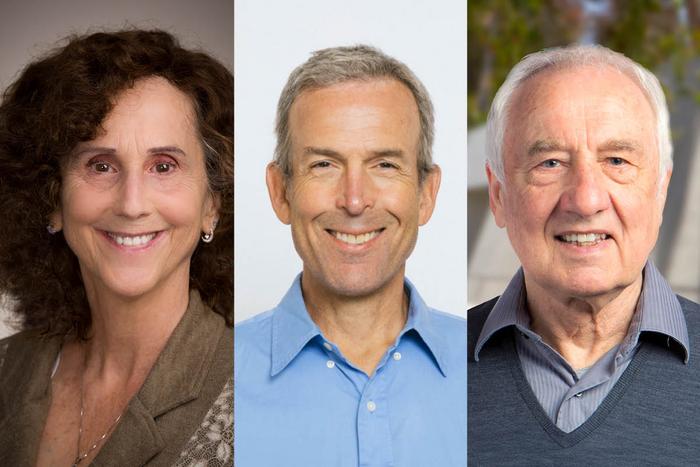Three structural biologists, whose groundbreaking research has paved the way for novel disease treatments and revealed new insights into the immune system, have been announced as the first recipients of Emory University’s annual Max Cooper Prize in Immunology.

Credit: Emory University
Three structural biologists, whose groundbreaking research has paved the way for novel disease treatments and revealed new insights into the immune system, have been announced as the first recipients of Emory University’s annual Max Cooper Prize in Immunology.
The $100,000 award, which will be shared equally among the researchers, was named for Dr. Max D. Cooper, a renowned immunologist at Emory, whose discoveries over more than six decades of research fundamentally changed science’s understanding of the adaptive immune system with implications for treatment of human disease. His contributions to the field earned him worldwide recognition, including the prestigious Lasker Award in 2019 for launching the course of modern immunology.
Reviewing a pool of prestigious nominations from across the globe, the prize jury selected the awardees based on their outstanding research contributions to the field of immunology at the fundamental and translational level.
Pamela J. Bjorkman, PhD, the David Baltimore Professor of Biology and Biological Engineering at the California Institute of Technology in Pasadena, won the award for discovering key details about how T cells recognize antigen and eliminate virally infected cells and tumor cells. Her research investigates the three-dimensional structure and function of molecules involved in cell surface interactions of the immune system.
“I am especially honored to receive this award because of my deep admiration for Max Cooper’s many fundamental discoveries in immunology,” says Bjorkman. “I’m also honored to share the prize with Ian Wilson and Chris Garcia, two giants in the field of structural immunology.”
K. Christopher Garcia, PhD, the Younger Family Professor and Professor of Structural Biology at Stanford University, won for investigating the three-dimensional structures of immune cell surface receptors that interact with cytokines and modulate the immune system. Understanding the mechanics of this process has led to new therapeutics, including therapies being tested on patients with cancer.
“Max Cooper is a giant of immunology,” says Garcia. “So to be awarded the inaugural Emory Max Cooper prize is a great honor. Also to receive this recognition along with Ian Wilson and Pamela Bjorkman is very humbling, as their work played a part in inspiring me to choose structural immunology as a focus of my career. I feel like my most exciting science is ahead of me.”
Ian A. Wilson, PhD, the Hansen Professor of Structural Biology at The Scripps Research Institute in La Jolla, was selected for enhancing understanding, at the molecular level, of how antibodies bind to and interact with key targets on pathogens, knowledge essential to developing new vaccines and other therapies.
“I am thrilled and deeply honored to have been awarded this prize with Pamela and Chris,” says Wilson. “It is especially poignant that it is named for Max Cooper, whose watershed discoveries changed the field of immunology and opened up new horizons to investigate and understand the beauty, complexity, and origins of the immune system.”
“All three of our award winners are greatly deserving of the honor of this inaugural prize named for Dr. Cooper,” says Ravi Thadhani, MD, MPH, executive vice president for health affairs at Emory University. “Their work has truly changed the face of immunology, from structural biology to protein discoveries.”
Bjorkman, Garcia, and Wilson all conducted closely related research in structural biology – the study of the three-dimensional structures of living molecules through advanced techniques including X-ray crystallography and electron microscopy. Like the namesake of the Max Cooper Prize, all three researchers are renowned for their cutting-edge discoveries and pioneering efforts to answer key questions about the structure of the immune system.
The inaugural awardees will be honored at The Cooper Prize Symposium scheduled for Thursday, September 12, 2024 on the Emory campus.
About Max Cooper
Cooper, who joined Emory in 2008, is a Georgia Research Alliance Eminent Scholar and professor in the Department of Pathology and Laboratory Medicine at Emory University School of Medicine and the Emory Vaccine Center, as well as a member of the Cancer Immunology Research Program at Emory’s Winship Cancer Institute. He is widely known for his discovery of B cells and for his pioneering studies on the evolution of the immune system.




